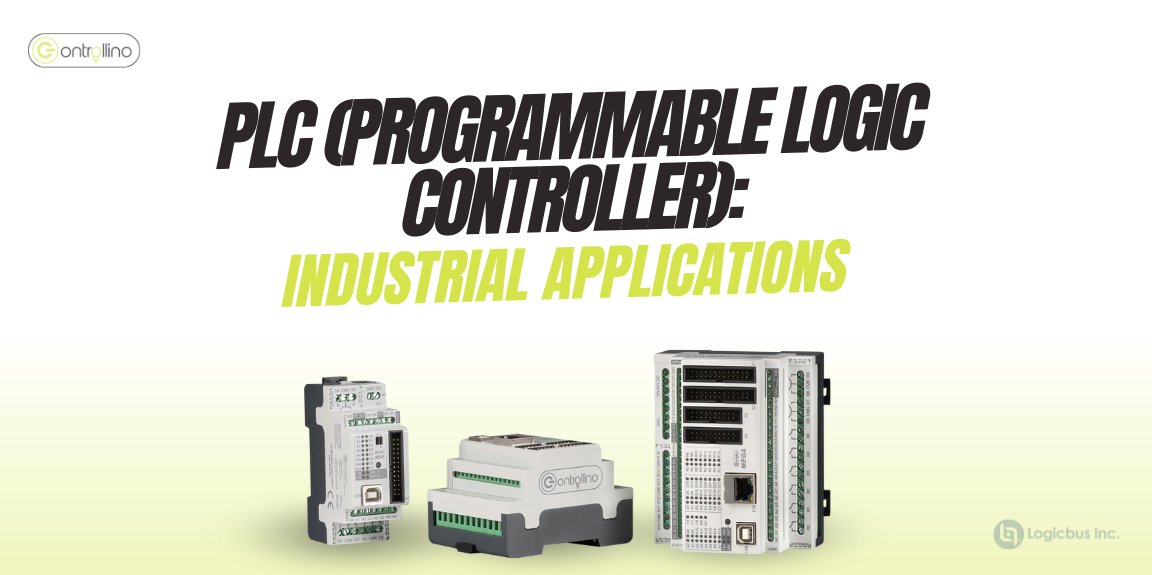PLC (Programmable Logic Controller): Industrial Applications
A PLC is a Programmable Logic Controller used to control and monitor various electro-mechanical processes in manufacturing, plants, sensors, actuators, and other automation applications.
The PLC can be utilized in a variety of control-system domains and industries, in addition to being used as a special-purpose digital computer. This is why PLCs are frequently referred to as industrial computers.
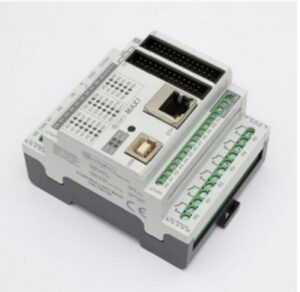
What are the applications of an industrial PLC?
An industrial PLC can be used in many different applications such as process control functions, manufacturing production, mobile automation, monitoring machine tool, steel industry, robotic automation system, glass industries, food processing systems, paper industry, and more!
1. Manufacturing production
The Internet of Things (IoT), intelligent automation, advanced robots, and other Smart Factory projects have made the production process much more efficient. PLCs continue to serve an important role in manufacturing, acting as a central processor for all real-time decisions, despite fast technological developments.
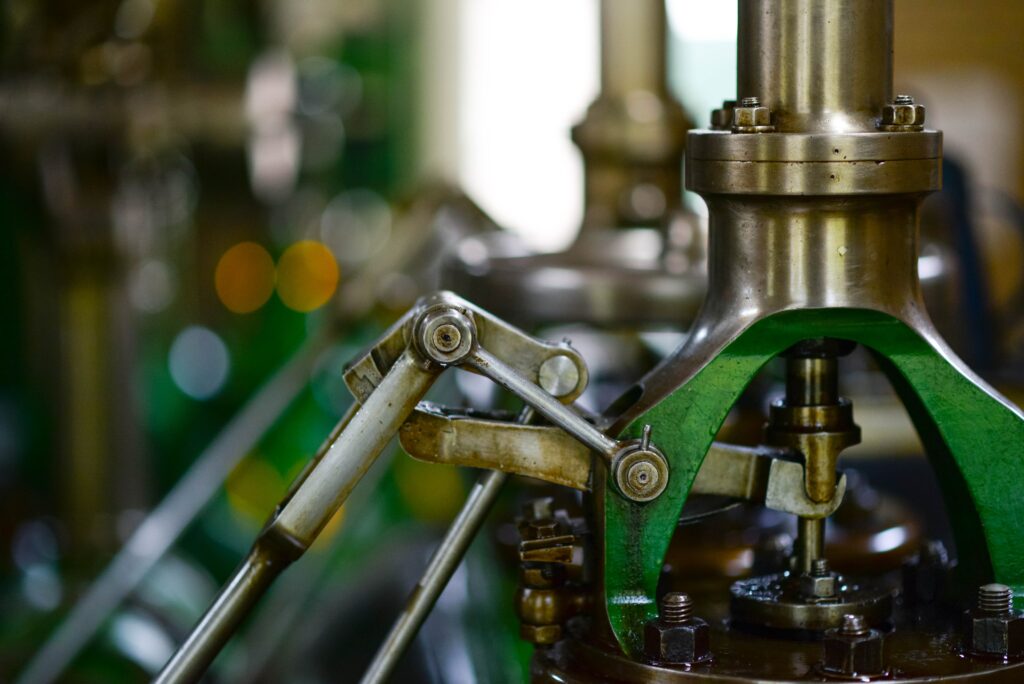
Example:
PLC gives reliable data, such as sensor performance and other information, which can be combined with cloud computing to create a more holistic picture, or “big data.” Plant managers and others can use analysis tools to better leverage resources, batch scheduling of jobs, logistics, supplier timing, and other essential operations in order to develop more efficient manufacturing processes.
2. Automobile automation
They use PLC in Automobile automation processes to standardize the production process and increase their ROI (Return on Investment)
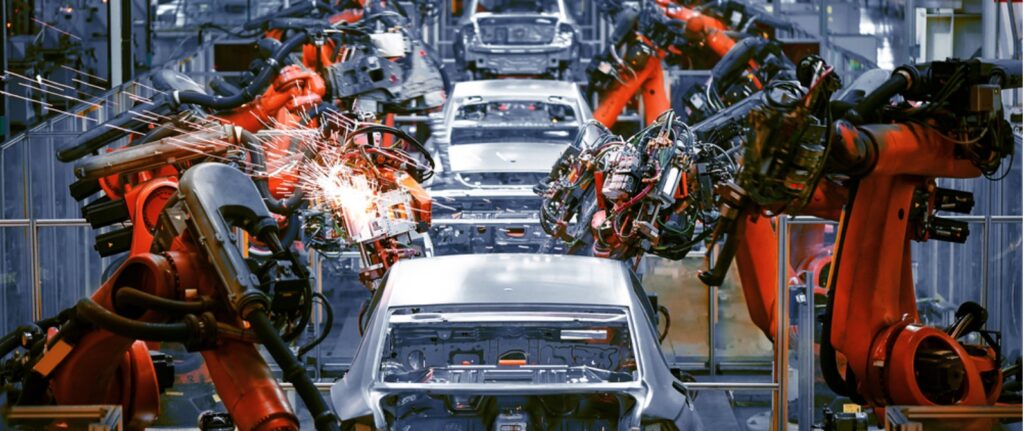
3. Monitoring machine tool
A PLC serves as a machine tool to monitor inputs and outputs to make decisions based on the program stored in the PLC’s memory. The use of PLCs helps to reduce human decision-making efforts to gain higher efficiency.
4. Steel industry
Every operation, such as managing temperature and pressure in boilers, raising electrodes, feeding oxygen lance for steel, controlling cooling bed, and so on, has relied heavily on PLC.
5. Robotic automation system
Robots are designed with powerful PLC software embedded into the robot controller. This program allows a small group of robots to operate independently from a centralized PLC, which has implications for the industry. This equates to significant cost reductions for smaller businesses that would otherwise have to spend in a standard PLC integration.

6. Glass industry
PLCs are used to control the material ratio and process flat glasses. The advanced technology of the PLC has allowed them to be in high demand in the field.
7. Food processing system
A PLC is the food processing system that serves for contaminant levels in the water, flow rates in major parts of the water treatment plant, and alternatively, valves that control in-process water flow can be controlled remotely.
8. Paper industry
The function of a PLC in the paper industry is to automate processes at high speed to ensure efficiency.
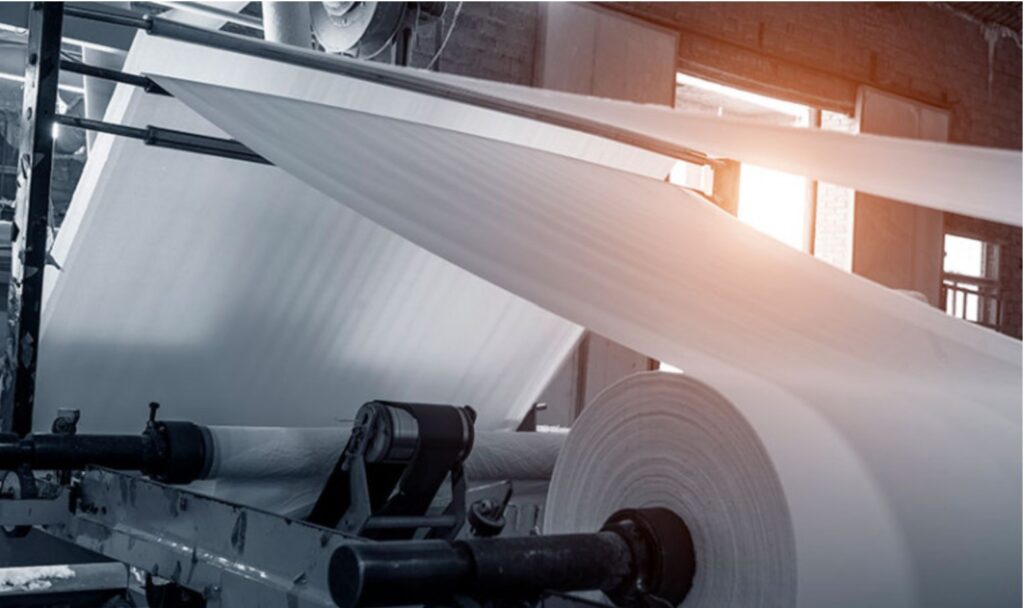
Example:
A PLC controls and supervises the creation of book pages or newspapers.
Which PLC is the best?
Controllino is the recommended industrial plc from Logicbus. Logisbus is a company leader in technology, automation, and control around the globe. We trust controllino for its versatility in the automation field.
Key features to consider:
- Compatible with Arduino Ide
- Up to 61 I/O (Inputs and outputs)
- CE, UL & IEC 61131 certifies
- Trusted by industry leaders around the world
- Open-source software
- Models that tailor your need with different types of power
Frequently Asked Questions about PLCs (FAQ):
Q: What sets apart a PLC from a conventional computer?
A: Their vast I/O (input/output) configurations, features such as heat, dust, and cold protection. Lastly, their low cost compared to a microcontroller system. This is what sets them apart from conventional computer systems.
Q: What advanced features does a PLC have?
A: Internet of Things (IoT) and Industry 4.0 programmable controllers are required to send data via Web browser, connect to databases via SQL, and even send data to the cloud via MQTT.
Q: When were PLCs invented?
A: PLCs were invented in 1968 and have played a major role in manufacturing operations since then.
Q: Are industrial PLCs going to be replaced?
A: PLCs have become a necessity for many companies to increase their efficiency, automation, and sales with no competition. Therefore, PLCs will continue to be an important role in the manufacturing process.
Visit our website
www.logicbus.com




sales@logicbus.com | support@logicbus.com | +1 619 616 7350 | Start conversation

